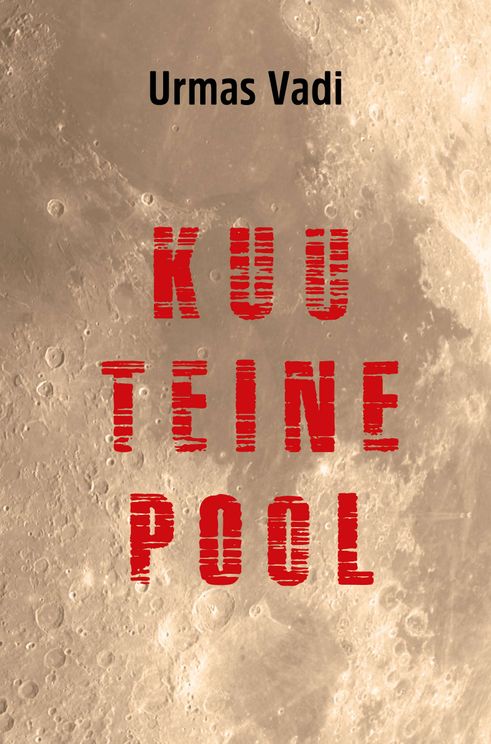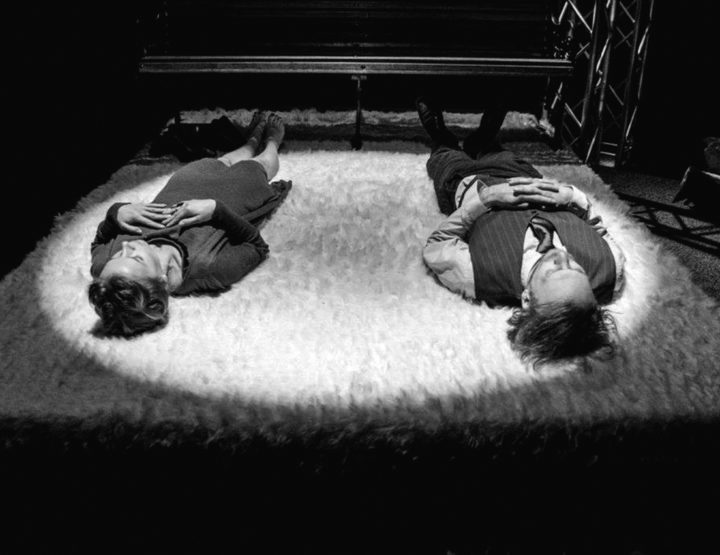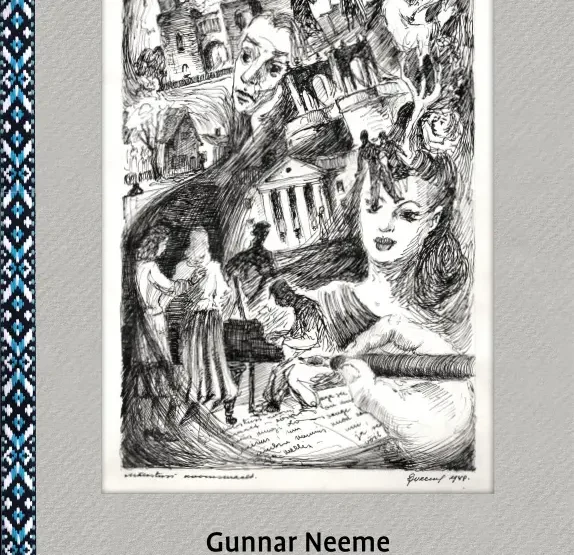Urmas Vadi has staged literary scenes where absolute realism and the absurd come together to form a bizarre cohabitation for years, if not decades. In his world, reality is often stranger than the imagined, and fantasy seems mundane and uncomplicated; Vadi’s writing is ludicrous but doesn’t go too far. By changing a tiny detail or two, he’s capable of displacing an entire ordinary, everyday setting.
Even having lived through the wild 80s and 90s in Estonia, The Far Side of the Moon feels like a work of science fiction. True, I was in different cities and social settings, not to mention having a different family life. And yet, reading about those decades in Vadi’s book is like having an out-of-body experience. Or rather, he manages to work that whole world and period so deep beneath my skin that it reads like a fairy tale, although a rather painful and hostile one. Yet, at the same time, the story is hilarious. Perhaps Vadi is a long-sought wordsmith who will release us Estonians from the agony of the recent past and transform it into a mirthfully troubled myth.
Because, to be frank, the recent past was rather shitty. I’d gladly erase the last decade of the previous century entirely from my memory. Intellectualism was paralyzed, and survival was life’s primary goal, turning you into a street rat. Ugh. Vadi weaves all those abominable years, starting a fair stretch before the earliest of them, into a fabric that will no doubt hold strong throughout the rest of history and warm many generations to come. I don’t know anyone who could describe those bygone transition years more genuinely than Vadi. Maybe no one apart from Lilli Luuk, who writes densely poetic short stories set in the era, though Vadi is baking a different dish entirely. The Far Side of the Moon comprises an unbelievable ensemble of life stories, which together form an offbeat and perfectly displaced concentration of what life was really like. Or most certainly was not.
Part of me can’t wrap my head around the fact that I lived in that same world in that same time. Then, a split second later, I’m beyond certain that I did. This comes from Vadi’s exceptional ability to transform the world with tiny nudges and change everything just a smidgen. Just as a magician once “made” the Statue of Liberty disappear (it’s still there), Vadi creates the illusion of making history vanish (it’s still there). And who cares about “objective” history, anyway? A good story is much better, and Vadi has good stories in spades. You shouldn’t let facts interrupt the flow of good storytelling.
It’s hard for me to imagine how well the book would work outside of Estonia. I believe that it could. On a universal scale, the charms and pains of small towns are rather similar. Not all the book’s local comedy and absurdities of those moments in time can translate effortlessly, of course. But some parts will, as any good translation requires creative storytelling in and of itself. The Far Side of the Moon offers material galore for renewing, reworking, and recreating.
For, Vadi’s novel is much more than a quaint family story involving Estonians at the tail end of the 20th century. A broader dimension lies within. It is not philosophical per se, but certainly one that explores attitudes towards life, companions, and the greater world. No matter whether those relationships are grounded in Põltsamaa, New Zealand, or Colorado. Moreover, the tone is upbeat, and almost every page offers amusement. Even if the laughter sometimes makes you cry. A quality of fine literature.
I put on Pink Floyd’s The Dark Side of the Moon. Bygone times, tears in your eyes, a few bits that make you laugh… Urmas Vadi doesn’t take himself too seriously, which is precisely what lends him credibility. Undoubtedly, he is one of our day’s most significant Estonian prose writers.
Karl-Martin Sinijärv (b 1971) is an Estonian journalist and poet.
Urmas Vadi
Kuu teine pool/ The Far Side of the Moon
Kolm Tarka, 2023, 384 pp.
ISBN 9789916420027





